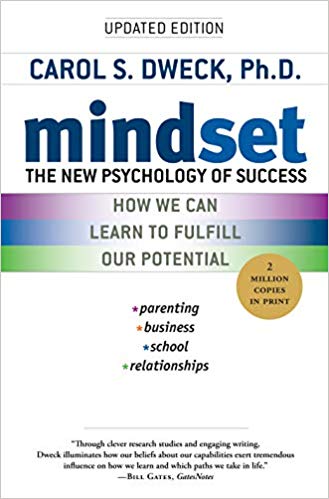It’s a scary world out there for freelancers. There’s the constant fear of losing your income and worry that you made the right choice in becoming self-employed.
Are you looking to push past the uncertainty of being a freelancer and evolve into an established business owner? You have all the tools you need. What’s missing is that you need to change the way you approach this.
Today, we’re bringing you how to transition from a freelancer mindset to a business owner mindset. From the first step you should take to a few valuable tricks and tips. Let’s get started!

Mindset
by Carole Deck
⏱ 13 minutes reading time
🎧 Audio version available
There is a dramatic difference between the mindset of a freelancer or a self-employed person and a business owner or entrepreneur.
Freelancers are more focused on making a consistent income and panicking when they don’t. On the other hand, business owners are more comfortable with revenue fluctuations.
While freelancers get clients through referrals and direct sales, business owners attract clients through known channels.
Because their work is customized, freelancers attract different clients. However, business owners are more focused on specific client types.
Freelancers also spend as little as possible on expenses; meanwhile, business owners understand that some spending is necessary.
Freelancers do most of the work with the clients themselves. Business owners understand that it’s okay to outsource their work in order to free up time. In addition, they know when it’s time to set work aside to grow their creativity.
And most damning is that freelancers tend to have vague mindsets. They envision clear goals, but they execute a vague strategy.
Have a Growth Mindset
Freelancers rarely have the time to think in terms of growth. They work with limited time, limited resources, and limited clients. It’s only around tax time when they start comparing the profits of this year to last year.
A business owner never settles for being stagnant and is hardly surprised at how much or how little you’ve made. There is always room for improvement.
This growth mindset is a game-changer.
But how can you do that? Think about how many clients you currently have and how many you added this month. Do you have extra employees? Is it time that you think about hiring another employee?
All these questions are crucial yet only brush the surface. Yes, it’s time to think beyond surviving the next month, or even six! What will this next year look like? Do you have an outline for what’s to come? Goals? And when you hit this target goal, how can you leverage that next year?
Once you have all the answers to these questions, it’s time to dig even deeper! Do you feel like a business owner yet? Because you’ve got this thing in the bag!
The step towards growing is learning. Are you making progress, both on a personal and a professional level? You can’t grow if you haven’t progressed past the basic knowledge you initially had.
Soon enough, this growth mindset will start affecting other areas in your brand, places where it wasn’t before.
Wrap Your Mind Around the Long Game
Again, freelancing often feels temporary, like it could slip away. And while owning a business is not exactly the fastest and most direct route to bringing home the big bucks, you have to understand that it’s a long game—one with a potentially large payoff. You just have to be patient.
However, this won’t be just like your last short-term job. There are going to be some bumps in the road, some failures, some successes—all of these are the fundamental pillars of becoming a successful business owner.
Build a Brand That Reflects You
Owning a business means owning your own unique brand, and it goes without saying that your brand should reflect your core messages and offers.
A freelancer offers everything to everyone, while having a brand is less accommodating. Your brand should attract ideal clients into your way of working and actually guide them through the expected outcome.
Of course, developing a brand involves a lot of self-discovery, especially if your business is based on your creativity and talent in a particular field.
Think of it this way: if you don’t have a brand that reflects you, then your message may not land right.
As we said before, this is the long game. It’s going to take a lot of reflection. It’s going to involve a lot of experimenting. But you know what? Every step you take, no matter how tiny, is bringing you closer and closer to owning a business that you believe in, care about, and are incredibly proud of.
When you achieve this goal, people are naturally going to be attracted to your business because they also believe in authenticity, excellence, and service.
Don’t Work for Just One Client
This is where freelancers branch off from business owners. The self-employed are more comfortable working for one single client. But now that you’re evolving into an amazing business owner, do you know of a brand or a store that sells to just one client?
Unless the answer is to the Royal Family or to a Kardashian, it’s time to branch out and avoid making the worst mistake any business owner can make.
When you rely solely on one client, no matter how lucrative working with them is, no matter how much consistent work they give you, they still hold power over your career. If you lose them, you lose your business—and income!
Don’t let one client take up 90% of your time and effort. If the deal falls through or your contract isn’t renewed for any reason, then it’s very likely that your business won’t survive.
Ideally, you want to have at least two or three clients. Always strive for having more clients lined up. Several small contracts and deals are dramatically better and safer than one big one.
Accept That You Shouldn’t Do All the Work
As a freelancer, hiring extra help may not be something that you have seriously considered. You may have even shrugged it off as a luxury. Having an extra hand to help isn’t a luxury; it’s a necessity.
In the past, you may have done all the work yourself—from getting coffee to planning budgets, marketing, and promoting. Now that you’re working on a much larger scale, it’s okay to subcontract some of the work of others. You have grown past the time of directly handling every part of the business.
You’re going to continue working hard, of course, but what you should be doing is focusing on the process, your business strategies, and on building assets that will help you grow and become more efficient.
If your brand is more the creative type, you can subcontract the more time-consuming parts of the business to someone else. Otherwise, your precious time will be taken up by doing the technical work.
Understand Your Value
The more hours you work, the more you’ll rethink your prices, your business models, and how to set expectations. Realize your potential and learn the dollar value of an hour’s work. It’s easy to doubt yourself and charge clients under-the-market rates because you haven’t realized your full potential yet.
Living in the constant fear that raising your prices is going to scare away new clients isn’t how a business owner acts. Never sell your services short. When you know the value of an hour’s work from you, clients are guaranteed to follow. In fact, your higher prices may just bring in more projects.
People want to pay for quality. And your business, your service, is a purchase. Embrace the mindset that your business, the one you have put so much passion and effort into, is worth paying for!
No one said becoming a business owner was a breeze, but freelancing isn’t either. You have gotten past the initial stage, so it’s time to consider how you’re going to convert from pursuing clients and having them pursue your business.
What Is Snapreads?

With the Snapreads app, you get the key insights from the best nonfiction books in minutes, not hours or days. Our experts transform these books into quick, memorable, easy-to-understand insights you can read when you have the time or listen to them on the go.


